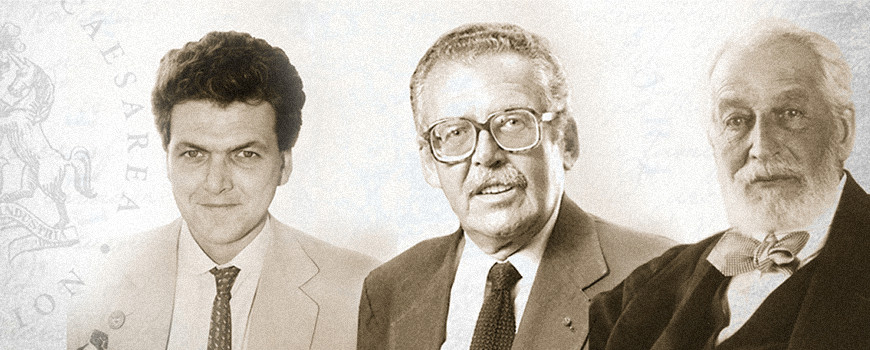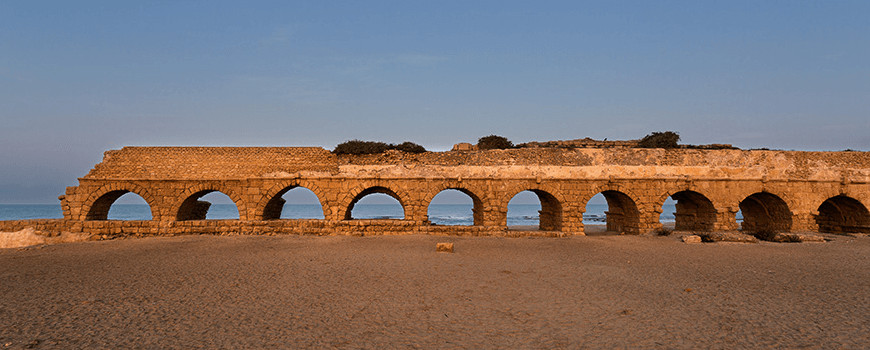“Throughout the nearly two-thousand-year history of the Jewish people in the Diaspora, there was probably no figure equal, or even comparable, to the amazing Baron Edmond de Rothschild- the builder of Jewish settlement in the renascent Jewish homeland of modern times. Even the combination of three distinguished personalities: Don Yosef Nasi, Sir Moses Montefiore and Baron Hirsch, each of whom accomplished great things in his own way and in his time, could not match the personality of the “Famous Benefactor,” with his great vision, wide-ranging enterprises and exceptional accomplishments.”

Baron Edmond James de Rothschild
Baron Edmond James de Rothschild was born in 1845 in France, in a town near Paris, and dedicated his time to philanthropy and the advancement of art and culture.
The plight of the Jews of Russia and the pogroms that raged there in 1881 led the Baron to the conclusion that the solution to the problem of the Jewish people in Eastern Europe lay in Jewish immigration to Israel, where Jews could build a new life. Influenced by the chief rabbi of Paris, the Baron began to support the Hibat Zion movement and the first groups of Jews who tried to immigrate to Israel and establish new moshavot (agricultural colonies).
In the initial stages of his activities in Israel, the Baron did not reveal his role in the financing of the Jewish settlement, and he was simply known as the “Famous Benefactor”. When the early moshavot began to face severe financial crises that threatened their existence, they turned to the Baron, who agreed to assist in their rescue. His first such action was in 1882 in Rishon Letzion, which stood on the brink of collapse. Later, the Baron expanded his activities and began to help the other moshavot that were also barely surviving. The Baron realized that the moshavot could not survive as isolated, scattered settlements, so he began to acquire large tracts of land upon which he founded new agricultural colonies.
In order to improve the efficiency of his support for the new settlements, the Baron set up a system to supervise the allocation of funds, sending experts in agriculture, water and economics to develop new crops that would strengthen the economic base of the moshavot. Rothschild’s teams of experts and administrators developed many types of agriculture industries, including vineyards and wineries whose products were marketed worldwide. Olive groves and modern olive oil presses were also set up, as well as a perfume industry based on agricultural crops introduced into Israel specifically for that purpose.
When Israel came under the British Mandate in 1923, Baron Rothschild established the Palestinian Jewish Colonization Association (PICA), to which he transferred the management of his enterprises in Israel.
Baron Rothschild died in France in 1934. Twenty years later, in 1954, his bones and those of his wife were brought to Israel and were interred at Ramat Hanadiv Memorial Gardens. Several of the moshavot established by the Baron were named after members of his family, including Zichron Yaakov, Mazkeret Batya, Bat Shlomo, Binyamina and Givat Ada. In all, Baron Rothschild purchased more than 500 square kilometers of land in Israel, upon which he established more than 40 settlements. When the State of Israel was established, the Rothschild family donated most of the land it owned to the State as a gift, the largest donation of land ever given to the State, and one that served as a critical impetus for the country’s development.

The Edmond de Rothschild Foundation (Israel)
The Edmond de Rothschild Foundation (Israel) was founded by Baron Edmond de Rothschild, grandchild of the Famous Benefactor. While his grandfather made his mark in land acquisition and settlement building, Baron Edmond de Rothschild will be remembered for his contribution to industry in Israel and his generous donations to educational and cultural institutions.
From the end of the 19th century up to the present day, the Rothschild family has been one of the mainstays of the evolvement, establishment and development of the State of Israel. For decades, the family has always stood at the forefront of realizing the vision of a progressive Jewish state that would serve, not only as a home for the Jewish people, but also as a shining example of social justice and equal opportunities. The Edmond de Rothschild Foundation (Israel) is successor to this vision- a vision which was formed more than a century ago and which continues to resonate among the Famous Benefactor’s descendants who follow in his path.
The Establishment of the Foundation and its Unique Operational Model
At the end of the 1950s, the Rothschild family transferred the lands in Caesarea (approximately 30 square kilometers) to the Edmond de Rothschild Foundation (Israel) and invited the State to become a partner in the Foundation.
The Foundation operates according to a unique model whereby all income derived from the development of Caesarea is transferred from the Foundation’s subsidiaries- the Caesarea Development Corporation and the Caesarea Assets Corporation – to the Foundation, which then donates the profits for the advancement of schools and higher education in Israel.
When Baron Edmond de Rothschild died in 1997, the family’s banking group and philanthropic foundations were passed on to his son, Baron Benjamin de Rothschild. Baron Benjamin de Rothschild and his wife, Baroness Ariane de Rothschild, are involved and play a leading role in the Edmond de Rothschild Foundation’s activities in Israel- as one of several Edmond de Rothschild Foundations that are active in the field of education around the world.
Visit the Edmond de Rothschild Foundation (Israel) website here.